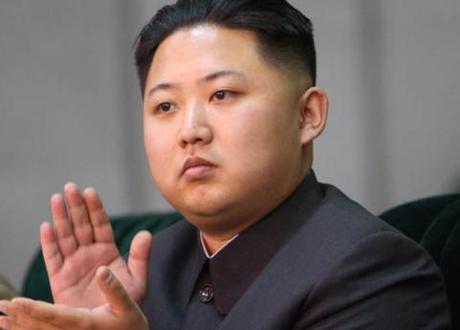
Kim Jong-il's successor, Kim Jong-un. http://guyism.com/lifestyle/so-the-new-possible-leader-of-north-korea-might-be-a-gamer-dork.html
Can it be true? North Korea has agreed to stop its nuclear activities, in return for food aid from the United States. It’s also going to let United Nations nuclear inspectors in to make sure that they’re keeping to their pledge. The deal came after talks in Beijing between the US and North Korea, and after talks had stalled over three years. The US has promised 240,000 tonnes of food aid for pregnant women and young children, which won’t be diverted to the military. North Korea has sufferred a famine in the 1990s, but still spent money on a nuclear programme, launching nuclear tests in 2009 and 2002. Since the death of Kim Jong-il, the country has been ruled by his son, Kim Jong-un. It was feared that his succession would lead to new tensions as power struggles would ensue. The world has cautiously welcomed this announcement. Cynics say that North Korea, which has a population of 25 million, has played this game before, and is simply gaining food whilst keeping its current nuclear arrangements; others say that it is a promising first step towards warmer relations with the rogue state.
“For now, the agreement is a welcome development. Talking is better than not talking and a freeze is better than an unfettered nuclear programme,” said Peter Beck, Korea representative for the Asia Foundation, quoted on The Daily Telegraph.
A hearty welcome? Hong Lei, a foreign ministry spokesman for China, said, quoted on The Daily Telegraph, “China is willing to work with relevant parties to continue to push forward the six-party talks process, and play a constructive role to realize long-term peace and stability on the Korean peninsula and northeast Asia.” Japan said it was a step in the right direction but more concrete action needed to take place,calling for the complete de-nuclearisation of the Korean peninsula. US Secretary of State Hillary Clinton said it was a “modest first step”, and said that the US was not hostile to North Korea and wished to further a relationship.
So long, suckers. It might seem like a “major concession”, said Allen McDuffee on The Washington Post, but it’s not impressing anyone. This has happened before, under both Clinton and Bush. McDuffee quoted Nicholas Eberstadt, who said that the ending was “familiar”: “Pyongyang ends up shaking down the international community for lots of food and cash, keeping its nukes and missiles, and getting ready to start up the game again for a whole new bunch of suckers.” But there is some value: this is an initial step towards more serious negotiationg.
What does it mean? Lots of things. The LA Times analysed the move, asking four experts for their thoughts. One said that it was a good sign about Kim Jong-un, and that this move boded well for his foreign policy. Another said that the move would bring North Korea into multilateral talks, even though we still don’t really know how extensive its nuclear programme is. This will lead to talks with South Korea and Japan.It also shows that North Korea is trying to make good on its “strong and prosperous” slogan, in the run up to the 100th anniversary of the country’s founder, Kim Il Sung. And finally, that the US isn’t actually giving that much – the amount of aid is “trivial”, but at least it’s strengthening relations.
What about Iran? Julian Borger on his Global Security blog in The Guardian said that this deal show that North Korea is looking for “continuity and stability.” People had worried that Kim Jong-nam might attack South Korea in order to “burnish” his credentials. But clearly, they’re looking more towards the welfare of the people. President Barack Obama must be “mightily relieved.” Now he can focus on Iran. But there’s no comparison to be made with that country – Iranians are “generally horrified” if you compare them to the “Hermit Kingdom.” Iran was offered incentives in 2008 to drop its nuclear programme – but refused. It sees itself as a world power assuming its rightful place. Plus, Iranian politics are not “monolithic.” In the forthcoming elections, no politician ”will gain any advantage by appearing ready to sell Iranian nuclear ambitions for some American grain.”

